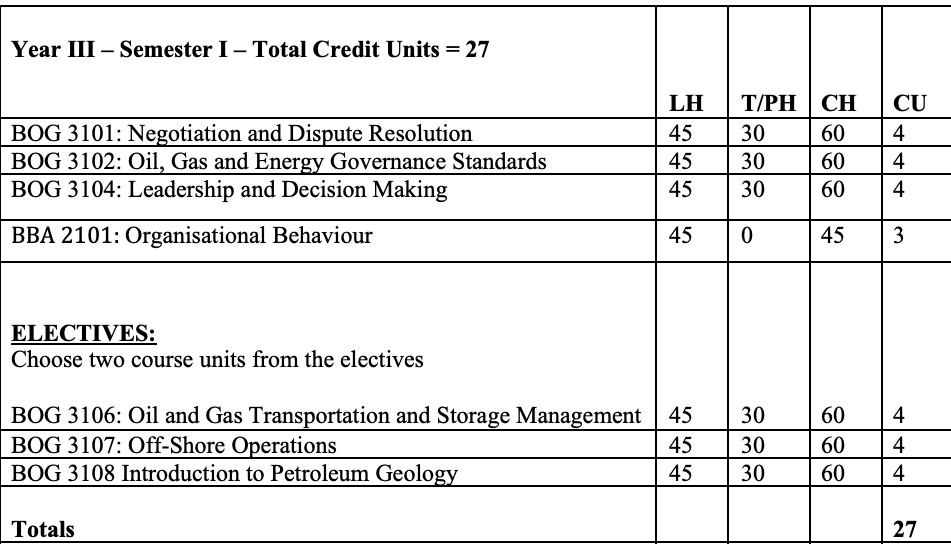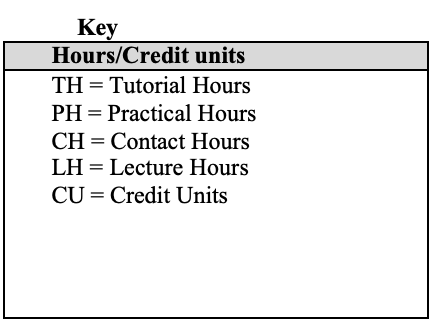
Ignite The Future
The BSc. in Oil, Gas and Energy Management provides a broad training in Oil, Gas and Energy industry matters; especially those pertaining to how small oil companies can work with National Oil Companies (NOCs) and energy ministries to better exploit hydrocarbon resources. In this respect training in commercialization strategies, economics and law will be important, as will an understanding of how science and technology can be applied to improve hydrocarbon exploration success and recovery in a sustainable manner.
The course addresses Oil, Gas and Energy from the business administration and management perspective. Adding to the uniqueness of this three-year programme is the incorporation of at least two (2) month field placements at the end of each of the first two years of study.
The first year offers fundamental academic grounding in business, accounting, economics, law and petroleum geosciences studies, whereas the second and third years of the programme feature courses that are specifically-tailored to fit the needs of the Oil, Gas and Energy business.
The programme will be offered only through a full time mode of study, and is designed for completion over three years with each year comprising of two main semesters running for 17 weeks each. A student who completes 80% of a particular academic year will be eligible to enroll for the field placement. Students can apply for field attachment exemption if they have working experience. Upon the completion of the programme, the graduates will receive a BSc. in Oil, Gas and Energy Management.
Target groups
The BSc. in Oil, Gas and Energy Management duration is minimum duration is three (3) years and Maximum is five (5) years.
To be eligible for the award of the Degree of Bachelor of Science in Oil, Gas and Energy Management, the candidate must obtain a minimum of 145 credit units.
Direct Entry
For admission under the Direct Entry Scheme, a candidate must have;
Essential ‘A Level subjects; Economics, Mathematics and Physics.
Relevant subjects; Geography, Chemistry and entrepreneurship.
Desirable subjects;
Diploma Entry Scheme
An applicant must have at least second class lower diploma from a recognized Institution in Oil and Gas Management, Petroleum and Geosciences production and Petroleum engineering.
Degree holders may also apply under this scheme.
International Applicants
Minimum 26/42 from 6 subjects.
At the successful completion of this programme the student will able to;
Tuition fees for privately sponsored students shall be *** USD per semester. All students are required to pay other functional and non-functional fees as may be defined on admission.
The program will take a total of 131 credit units. The structure guidelines are as follows;






